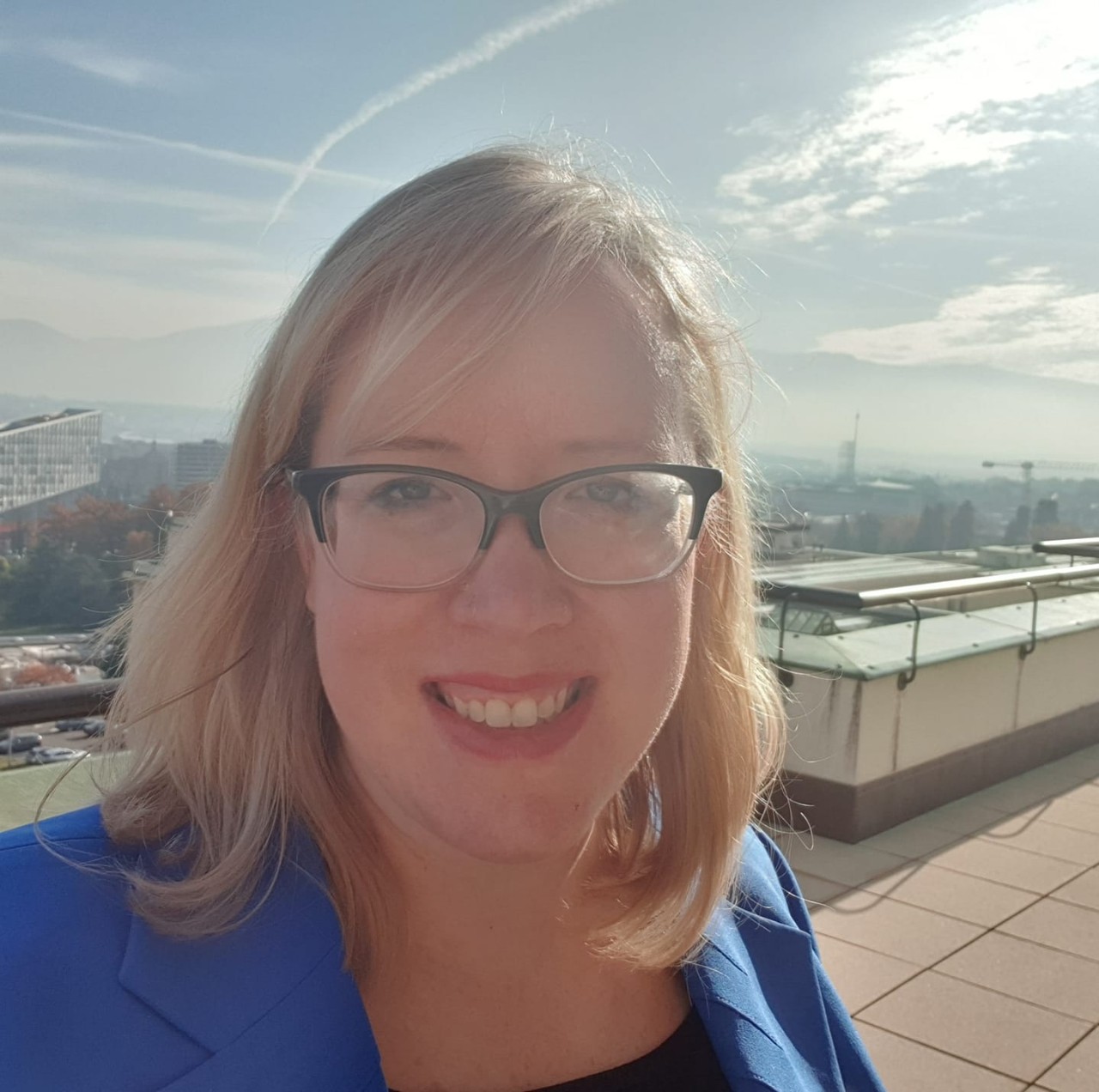
Human rights scholar works to enhance oversight of corporations
UC College of Law alumna Tara Van Ho investigates how businesses impact human rights
In her first year of law school, University of Cincinnati College of Law graduate Tara Van Ho knew she wanted to be involved with human rights but wasn’t sure how.
She met with Professor Bert Lockwood, director of UC's Urban Morgan Institute for Human Rights, and asked his advice.
“I asked him, where is the harvest plentiful but the workers few?,” recalled Van Ho, “and he told me that the intersection of business and human rights would be a very important and growing field in the coming years. He had a very clear vision of where the law needed to go, and he was right."

Dr. Tara Van Ho
At the time -- 2003 -- the international community was still working to develop norms to guide legal development. In 2011, the United Nations adopted their "Guiding Principles on Business and Human Rights." Since then, the field has grown rapidly.
“The number of businesses that have taken up their human rights responsibilities, the number of states that are adopting new legislation, and the number of cases that are being brought before courts—it’s all exploded.” said Van Ho.
Van Ho grew up in a socio-economically, racially, and religiously diverse community, and saw a lot of injustice from a young age. Much of this injustice was socio-economic, from the treatment of workers to the contingent relationship of health care to employment, she says. Her family was directly touched by the latter when her mother was diagnosed with breast cancer.
“She had only had health insurance for six weeks,” said Van Ho, “If she was diagnosed any sooner, my parents would have gone into crippling debt. Any later, and she may have died.”
"Seeing those kinds of deeply embedded injustices, it felt like I could identify what was wrong in society, but I didn't necessarily know how to make it right. I came to the legal professions as a means of identifying what can be done better and understanding the structural changes that are needed to make society fairer and more just,” said Van Ho.
These experiences, coupled with her Christian faith, motivated Van Ho to want to work in the human rights field. She credits coming to UC Law and working on the Human Rights Quarterly with introducing her to the field that has become her life’s work.
“During those three years, I met more people who have influenced my career and my thoughts about human rights, than I have at any other point in my life.”
After completing her J.D., Van Ho went to work for a traditional law firm, but soon found it was not for her.
“I kept feeling like I was living someone else’s life,” she said.
Van Ho again spoke to Lockwood, who advised her to pursue an LL.M. After earning both an LL.M and Ph.D. from Essex University in the United Kingdom, Van Ho is now a lecturer there, director of the Postgraduate Programs (LL.M. & M.A.) in human rights, and co-director of the Essex Business and Human Rights Project.
During those three years, I met more people who have influenced my career and my thoughts about human rights, than I have at any other point in my life.
Tara Van Ho
“Since I started working in this field, everything has fallen into place,” says Van Ho. “All the reasons I wanted to study human rights are related to this growing field of human rights and business”
Van Ho works with states, non-governmental organizations, and intergovernmental organizations to study how legal frameworks either hold businesses accountable or allow businesses to breach human rights. She then identifies necessary changes to protect human rights.
Getting these changes implemented can often be the most difficult part, she says.
“Most of the victims in these situations, whether it’s Columbia or Palestine or Myanmar, are able to articulate very clearly what needs to happen and what their rights should be. The demands are remarkably consistent across cultures,” said Van Ho.
Most nations are very good at recognizing when human rights are being violated by others, but less so when their own interests are directly involved, said Van Ho. While victims and external observers mostly agree on what the fundamental human rights are, corporations and governments who are perpetrators or aligned with perpetrators often point to cultural relativism: the idea that their particular situation is unique and cannot be judged from the outside.
“What was surprising to me, upon entering the field, was that fixing laws is only part of it: it’s really more about changing minds.” said Van Ho. “A lot of the work is getting people to see that their self-interest exists beyond the immediate short term, that there is a tangible benefit to protecting human rights in the long run.”
In 2018, Van Ho helped write “Ten Principles for Respecting Human Rights During Reconstruction Efforts in Syria,” a document which has been used by the Dutch government to advocate for a coherent and appropriate response from the United Nations to the crisis in Syria, and been influential in bilateral negotiation of reconstruction efforts.
Last year, Van Ho co-authored a report on the Norwegian government pension fund and its investment in companies that profit from occupied territories. The report examines the complicity of investors who fund companies that profit from human rights abuses.
“Companies will go into an occupied territory, and believe they have rights to use the land when actually it has been taken by forcibly displacing people,” said Van Ho. “Pension funds will invest in these companies because it looks like they are making great profits, but of course that’s because they are using land that was very cheap because of how it was acquired.”
Law students who are interested in global social justice issues like these and have a passion for making a difference can find unique opportunities through the Urban Morgan Institute for Human Rights.
In fact, the University of Cincinnati College of Law is well known in the human rights community throughout the world. “Anywhere I go, when I tell people I went to Cincinnati, they ask if I know Bert Lockwood, and they know about the Human Rights Quarterly,” said Van Ho.
Featured image: Kyle Glenn/Unsplash.com
Related Stories
Exploring Careers in Robotics Engineering: A Path to the Future
March 28, 2025
Discover robotics engineering careers: skills, paths, and opportunities in manufacturing, healthcare, and space. Explore salaries and how to start at UC’s CEAS. Shape the future with innovation!
UC mechanical engineering student helps send science to the Moon...
March 28, 2025
UC student Ilyas Malik aids Firefly's lunar mission for NASA's CLPS. Explore his journey, UC's co-op impact, and aerospace insights. Discover how education transforms career paths in space exploration.
UC, Cincinnati Public Schools partner to host 4th annual CPS All...
March 26, 2025
The University of Cincinnati is partnering with Cincinnati Public Schools to host the 4th annual CPS All Star Showcase. The event is set for Sunday, April 6 in Fifth Third Arena.
